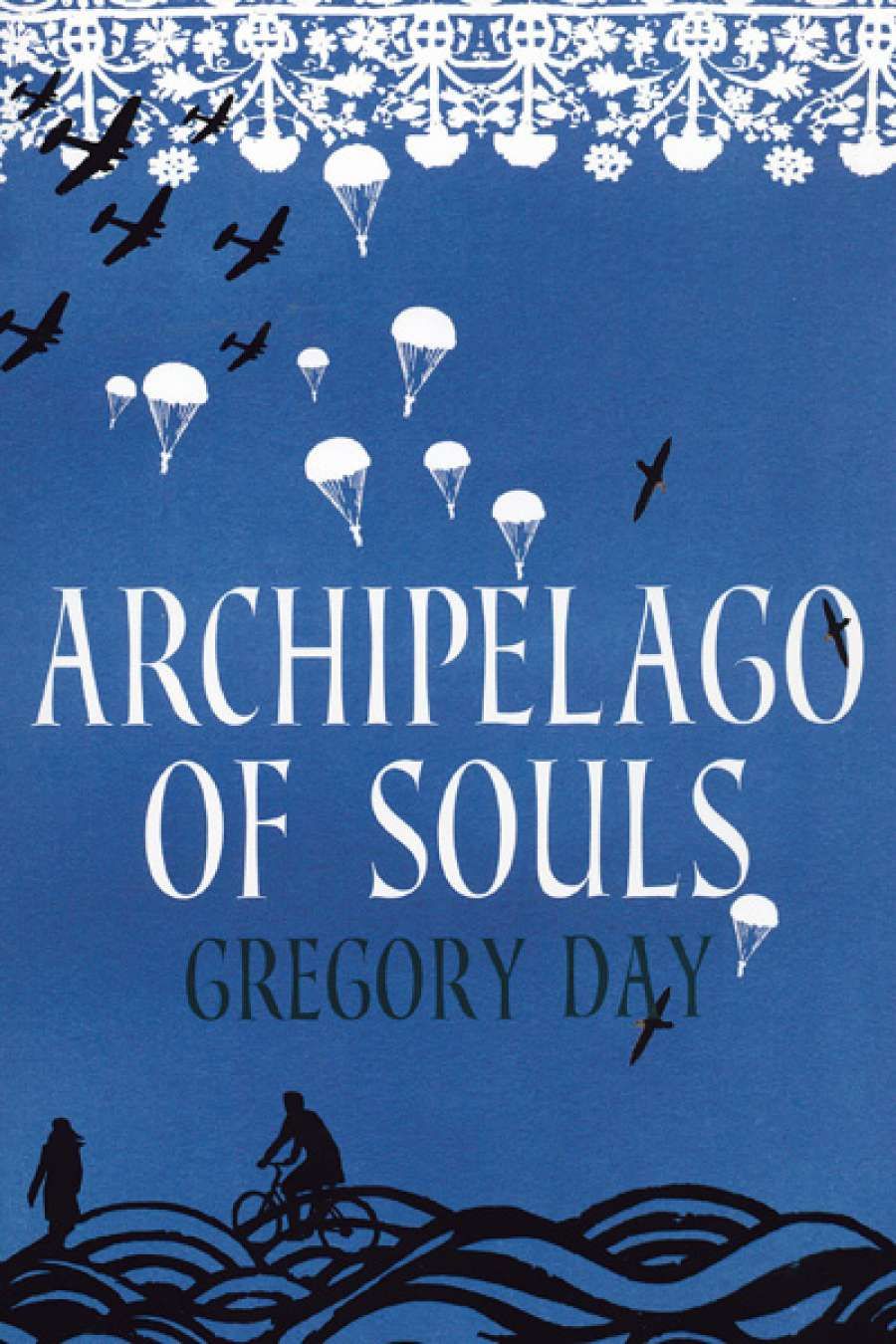
- Free Article: No
- Contents Category: Fiction
- Custom Article Title: Brian Matthews reviews 'Archipelago of Souls' by Gregory Day
- Book 1 Title: Archipelago of Souls
- Book 1 Biblio: Picador, $32.95 pb, 374 pp, 9781743537190
This is true to the record – the much decorated ‘Tiny’ Freyberg was indeed the commander looking seaward instead of up to the skies – but it is Day’s imaginative vision that turns the parachutists into a grimly beautiful ‘slow, insidious drift’ and tracks the random, alien spread of their landings.
In the chaos of the German invasion, Wesley Cress and his Byronic younger brother, Vern, lose contact with each other. They will never meet again, and Wes’s mission to discover the truth about Vern’s death drives his trek out of the mountains and down to the coast after he realises, to his horror, that he has been left behind by the evacuating ships. On his return to civilian life, Wes abandons the family farm where he finds ‘nothing much … The stock all gone, the windows smashed, and some old swaggy from Skipton asleep on the scoria under the pittosporum’, a desolation brilliantly observed and recounted with a rhythmic dying fall that beautifully intones the sense of decline and neglect.
‘it is a daring and often poetic imagination that conducts the narrative of Cress’s Cretan ordeal and its peacetime aftermath’
To cope with numerous and multiplying lines of story, the narrative alternates continually between two islands, Wes’s wartime ordeal on Crete and his postwar retreat to King Island, where love, friendship, his own cathartic, confessional, writing, and the natural world gradually heal his bruised, recriminating spirit and slowly ameliorate the stoicism he had vaguely imbibed from Vern’s copy of Epictetus. He becomes, in the philosopher’s words, ‘contented with the divine administration’, even if it is a contentment laced with ironic humour.
 Gregory Day
Gregory Day
On Crete the story becomes picaresque. Wes travels through different locales and villages meeting a variety of people and encountering various dangers, trials, and moments of good fortune. There are, among others, the intrusive and controlling Manolis, and the charismatic monk, Andreas, at Agio Dormiton. It is with this thematic development and its multiplying stories, punctuated by the periodic switches in time and place to King Island, that the novel’s structure starts to waver.
Despite Wes’s central role in each, and the regret and loss he takes with him from one to the other, the Cretan and the King Island stories gradually drift too far apart. Wes could have brought his burden of sorrow and war terrors to what would become his love story on King Island with much less attention to the details of the gnomic Andreas, or to Uncle Tassos’s weighty pronouncements and intuitions, or indeed to Wes’s own fascination, reminiscent of John Fowles’s The Magus (1965), with the elusive, totemic, and mysterious character of a Greek island.
Day is an inventive and accomplished writer, creatively open to a wide and productive range of literary reference as he strikes his own individual notes – the Dylan Thomas-like ‘mutton-burrowed shore’ and ‘owl-studded’ hill are only two of many evocative examples. He avoids longueurs, but there is much indulgence in this novel. It is not the weight of research that impinges, it is the excitement and exhilaration that imagining in particular his Cretan story – its history, its fictional and poetic possibilities, its landscapes – obviously engenders in him. The effect is to loosen the connection between the novel’s two intricate strands with overabundant narrative detail and threads, so that Archipelago of Souls, although never less than absorbing, and despite its affecting conclusion, tantalises by remaining structurally unresolved.


Comments powered by CComment